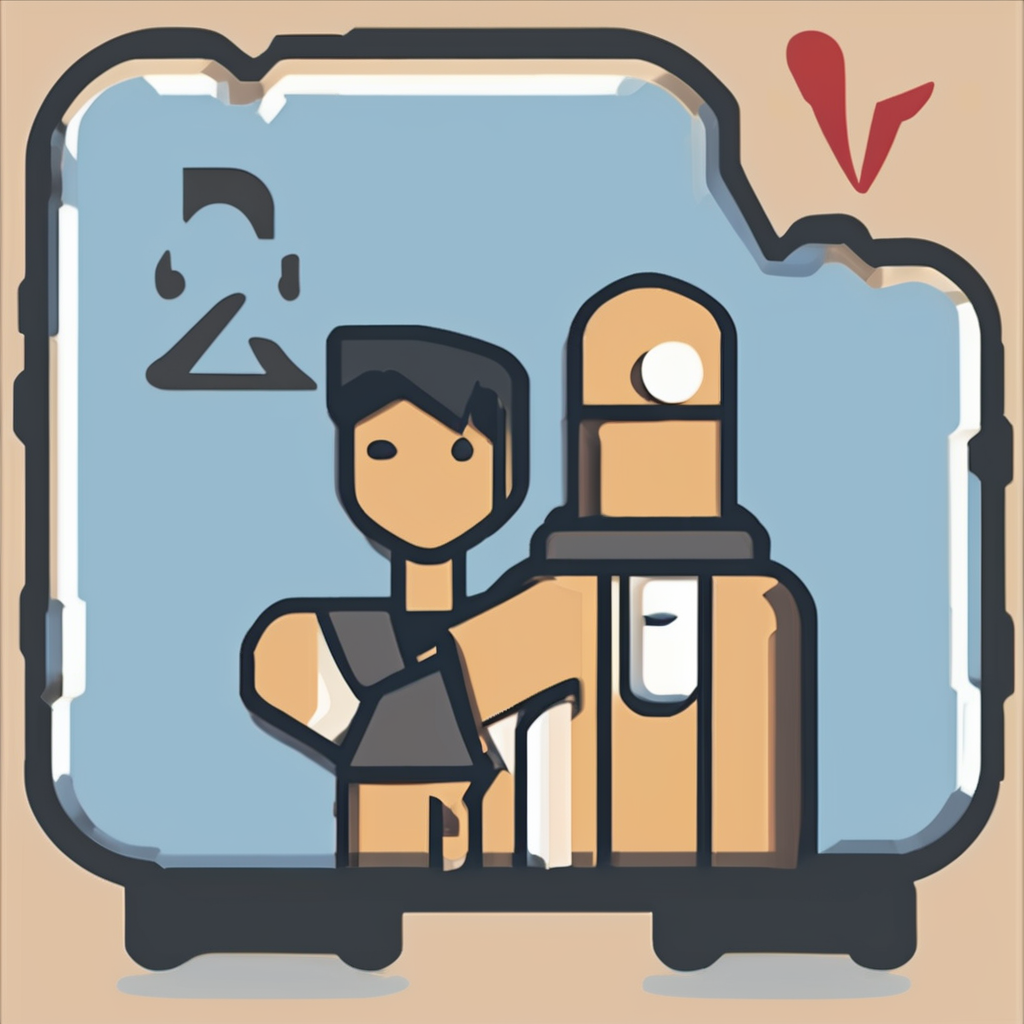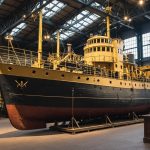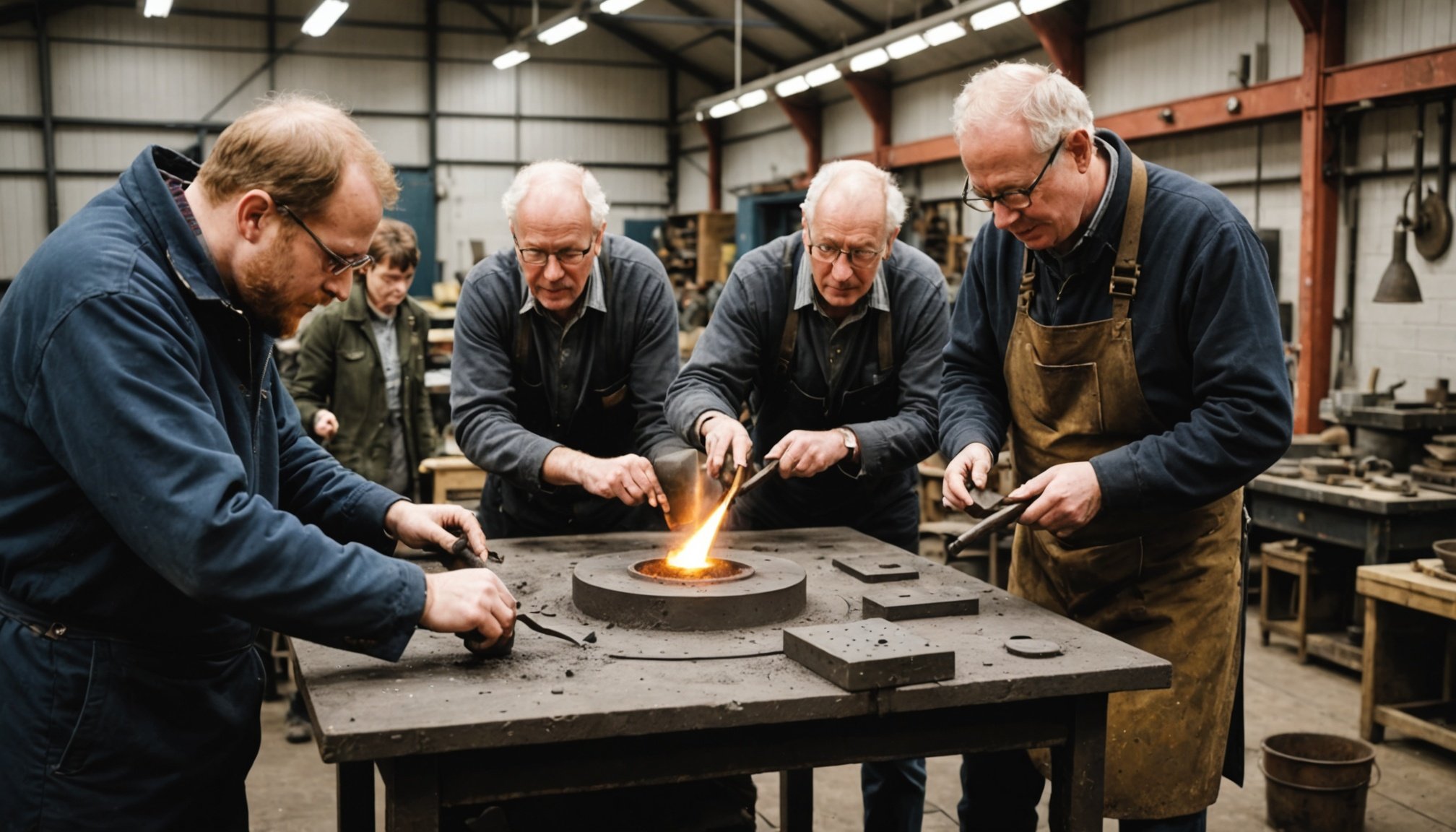Overview of British Metal Casting History
The British metal casting history is rich and expansive, dating back to ancient times. As an industrial cornerstone, the practice has evolved significantly over the centuries. Initially, metal casting in Britain began with small-scale operations during the Bronze Age. These early techniques laid the groundwork for future advancements.
Throughout the evolution of metal casting, several key developments have played a pivotal role in shaping the industry. The introduction of iron casting during the Roman occupation marked a significant leap, as it allowed for the production of sturdier and more durable metal objects. By the Industrial Revolution, technological advancements facilitated more sophisticated casting methods, making mass production feasible.
Topic to read : Discover the Most Fascinating UK Towns for Exploring the Dark History of British Witchcraft Persecution Tours
Studying the historical significance of British metal casting offers insights into the technological and economic progress of the nation. Metal casting not only supported the growth of various manufacturing sectors but also contributed to Britain’s global power during its industrial peak. Today, understanding this history helps appreciate the foundation upon which modern practices are built, emphasising the importance of studying British metal casting as a lens to view historical and industrial transformation.
Types of Workshops Available
Exploring the diverse types of workshops available can open a world of learning opportunities for enthusiasts, whether seasoned or beginners. Workshops generally fall into two main categories: hands-on and lecture-based. Hands-on workshops offer participants practical experience, allowing them to engage with materials directly. This type provides a more immersive learning experience. Lecture-based workshops, on the other hand, focus on theoretical knowledge and often include presentations by experts.
Also to discover : Uncovering the Best UK Cities for In-Depth Tours of British Press Photography History
Participants can choose from beginner to advanced workshops, each tailored to different levels of expertise. Beginner workshops aim to build foundational skills, offering an introduction to basic techniques. Advanced workshops dive deeper into complex methods, catering to those with prior experience seeking to refine or enhance their skills further.
An intriguing offering within the realm of workshops is those dedicated to historical techniques. These unique workshops delve into ancient methods, offering a window into the past and preserving traditional practices. This not only broadens the participant’s skill set but also deepens their appreciation for time-honored craftsmanship. From metal casting workshops to experimenting with age-old tools, the diversity within these sessions allows for a varied and enriching experience.
Featured Workshops
Explore some of the notable workshops we recommend for an enriching learning journey. These offer unique experiences with impactful outcomes designed to cater to diverse interests and needs.
Workshop Name 1
Taking place in vibrant Location A, this workshop is hosted by the renowned Organisation X. It spans over a series of five interactive sessions held weekly, each lasting two hours. Participants will gain insights into the latest industry trends and engage in hands-on activities to hone practical skills. The flexible schedule on weekends makes it accessible for everyone.
Workshop Name 2
Held in the scenic Location B, Organisation Y presents this comprehensive three-day workshop. Running from Friday through Sunday, it offers a deep dive into innovative tools and methodologies. Key outcomes include mastering effective techniques and applying them in real-world scenarios. This is perfect for those seeking transformational experiences.
Workshop Name 3
Set in the culturally rich Location C, this workshop by Organisation Z lasts two weeks with sessions conducted every evening. The main focus is on collaborative learning and peer interaction. Participants will leave with a robust understanding of foundational concepts and their practical applications, ensuring well-rounded educational exposure.
Participant Experiences
Understanding the impact of workshops in attendees’ lives can be insightful when examining participant testimonials and user reviews. Many participants have noted common themes such as increased confidence and enhanced skills after these workshops. This indicates a strong, positive impact on their personal learning journeys.
Workshop experiences often revolve around practical activities that provide hands-on learning. Participants frequently recount the informative nature of these sessions, which combine both theoretical knowledge and practical application. For instance, one attendee shared how practicing new techniques during a workshop allowed them to feel empowered in applying these skills in real-world scenarios.
Moreover, memorable moments from workshops frequently involve the dynamic interplay between instructors and participants. A recurring anecdote among participants highlights the interactive and supportive environment, encouraging active participation and engagement. This has led to not only a deeper understanding of the material but also a sense of community among learners.
Overall, participant testimonials underscore the transformative nature of workshops, emphasizing both personal and professional growth. Through shared experiences and supportive settings, individuals are often able to harness newfound skills effectively.
Expert Insights
In the dynamic world of British metal casting, industry experts provide invaluable insights that guide the evolution of this intricate craft. Interviews with workshop instructors reveal that understanding the historical context of metal casting is crucial. They argue that this knowledge fosters a deeper appreciation of the craft and grounds learners in traditional techniques even as the field progresses.
Expert opinions underscore the importance of merging historical perspective with modern practice. For instance, instructors highlight the role of early blacksmithing techniques in shaping contemporary casting methods. This historical context not only enriches the learning experience but also enhances innovation and creativity within the industry.
Looking ahead, experts predict exciting developments in British metal casting education. Trends such as the integration of digital design tools and advanced simulation software are on the rise. These technologies are revolutionizing how educational programs are structured, bringing a fresh approach to learning. Industry experts believe that such advancements will prepare the next generation of metalworkers, equipping them with a robust blend of traditional skills and cutting-edge techniques, ensuring the craft’s vitality and relevance in the future. This fusion of past, present, and future reflects the dynamic nature of the industry.
Preparing for Your Workshop Experience
Embarking on a workshop journey requires thoughtful planning, especially for those eager to maximize their learning and engagement. Here is a guide on workshop preparation designed to ensure a fruitful experience.
Begin with understanding the workshop agenda and session objectives. This comprehension will provide clarity and guide your focus throughout the program. Attendees should review the course materials or any pre-work assignments if available. This foresight enables you to come prepared and familiar with the topics at hand.
Thinking about what to bring, participants should compile a list of essential materials and tools. Generally, this will include:
- Notebook and pen for taking notes
- Any required textbooks or study guides
- Laptop or tablet if digital resources are part of the workshop
To maximise benefits, consider these tips: Engage actively during discussions; participation enhances retention and understanding. Networking with peers is invaluable; you not only gain diverse insights but could form lasting connections. Finally, always remain open to feedback and inquiry. Asking questions is crucial for clarifying doubts and solidifying knowledge.
Additional Resources
For those interested in delving deeper into the historical context and technical nuances of British metal casting, a wealth of learning resources is available. Scholars and enthusiasts can explore a variety of recommended books and articles that provide comprehensive insights into this rich subject. Notable works include titles by historians with expertise in industrial practices and renowned metallurgists.
Numerous online resources and archives offer free access to documents and visual materials that trace the evolution of metal casting. Websites of institutions such as the British Library and specialized history forums can provide invaluable further reading material, enhancing understanding through curated content.
For a tangible experience, several museums and exhibitions regularly highlight the legacy of metal casting in Britain. These sites allow visitors to engage with real artifacts and interactive displays. Many exhibitions detail the impact of metalworks on society, showcasing tools and products from different eras. Attending these events can create a lasting impression, connecting theoretical knowledge with historical reality.
Whether through books, digital archives, or physical exhibits, these resources together form a holistic approach to appreciating the intricate world of metal casting history. They enable a deeper appreciation of both the art and science behind this influential craft.











